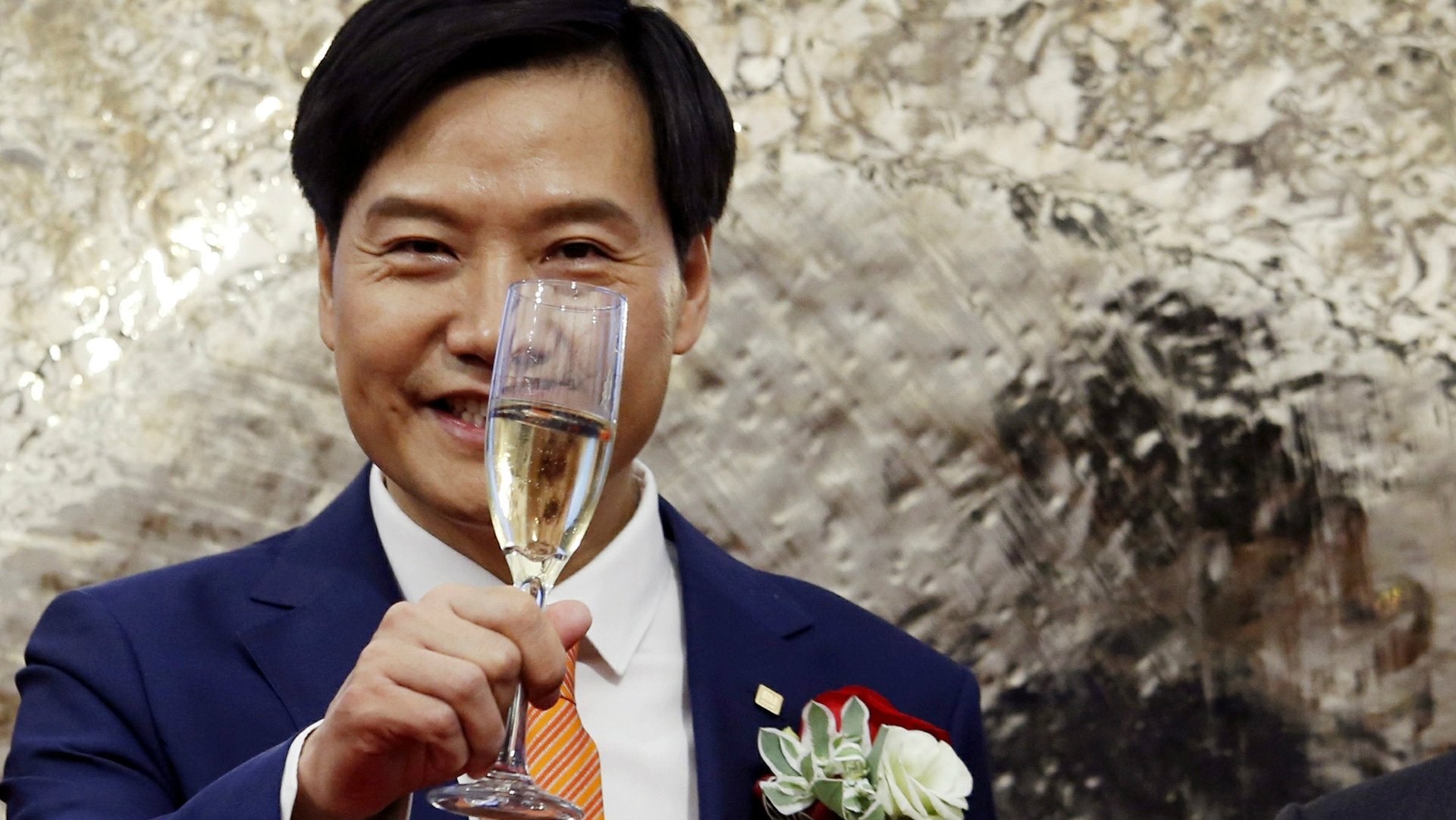Xiaomi starts trading just as the “biggest trade war in history” begins
Chinese smartphone maker Xiaomi began trading on the Hong Kong Stock Exchange this morning (July 9), in what amounts to one of the largest IPOs in recent years. In a case of very bad timing, its debut comes just three days after a trade war between China and the US began in earnest, with the imposition by both countries of tariffs on $34 billion in goods imported from the other.


Chinese smartphone maker Xiaomi began trading on the Hong Kong Stock Exchange this morning (July 9), in what amounts to one of the largest IPOs in recent years. In a case of very bad timing, its debut comes just three days after a trade war between China and the US began in earnest, with the imposition by both countries of tariffs on $34 billion in goods imported from the other.
The stock began trading at HK$16.60, down 2.4% from the HK$17 ($2.17) the offer was priced at, which was at the low end of the offer range. It dropped as low as HK$16 at one point, a 5.9% decline from the original pricing, but by the lunch break, shares climbed back to HK$16.98. At that price, its market cap would be HK$360.26 billion (about $45 billion), less than half of the $100 billion valuation it was rumored to be aiming for at one point in the IPO process.
The stock’s lack of pop is likely due to a mix of reasons, both drag from rising geopolitical tension—on Friday (July 6), China’s Ministry of Commerce accused Washington of launching “the largest trade war in history” after the US taxes took effect—and skepticism toward Xiaomi’s unusual business model, which encompasses hardware, software and a slew of home products.
The company emerged as a maker of inexpensive but high-quality smartphones, which took over the Chinese market thanks to savvy marketing and branding. Roughly eight years since its founding, it’s now the fourth-largest phone maker in the world, with strong sales in India and a promising early start in Europe. With its broadening product catalogue (which now includes towels, pillows, and hundreds of non-tech goods), it’s becoming a symbol of Chinese companies delivering effectively on design, quality, and price.
Xiaomi founder Lei Jun described the company’s significance in an open letter published on July 8:
In these eight years alone, China’s inferior-quality copycat phones have been completely eliminated, in large part due to Xiaomi’s contributions. The quality of China’s smartphones and smart hardware is constantly improving, while prices continue to lower. Chinese companies are expanding rapidly across the world, with an increased emphasis on design and user experience, winning over hearts and minds of consumers.
Lei’s comments might surprise some quarters, given that Xiaomi itself has been accused of IP infringement in the past, most notably when Ericsson filed a lawsuit against it in India alleging it infringed on its patents (Xiaomi has disputes the allegations).
Xiaomi is one of countless companies that stands to be affected by the US-China trade sparring, though for few others will the timing of the trade war be as unlucky.